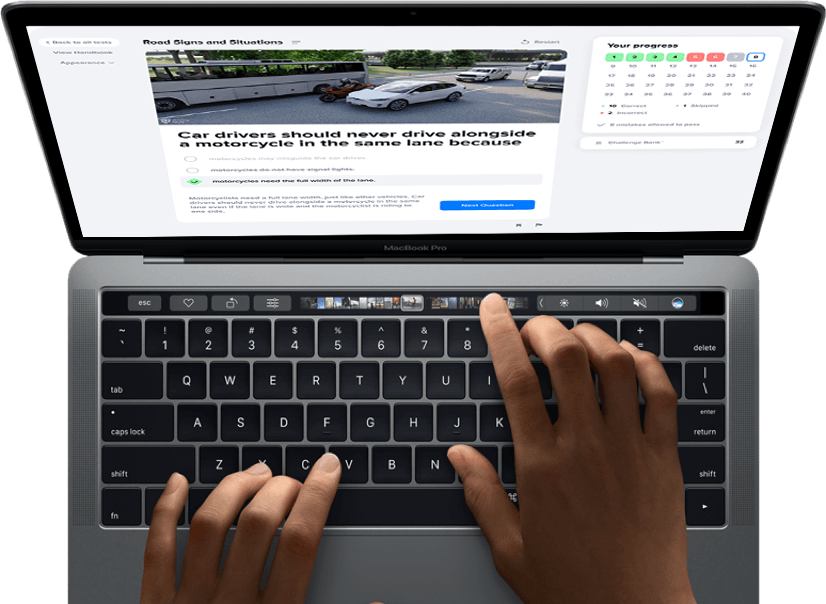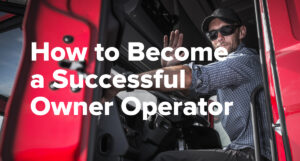What is an owner-operator in trucking?
An owner-operator (also known as a "single-truck operator" or an "independent trucker") is a type of truck driver who owns the truck he or she drives and thus is self-employed. The term is most common in the United States and Canada. Some owner-operators lease their trucks instead of owning them outright. Owner-operators are considered self-employed and thus are not employees of the trucking company for whom they haul freight. Learn how to become an owner-operator truck driver.
Becoming a truck driver with no experience can be a daunting task. It can be difficult to find a company that will hire you without experience, and even if you do find one, the pay and benefits may not be as good as they are for experienced drivers. However, there's something you can do to increase your chances of success: becoming an independent owner-operator. There are many advantages to becoming an owner-operator with no experience. First, you'll be your own boss, which means you can set your own schedule and make your own decisions about when and where to drive. You'll also have the opportunity to build your own business, which can lead to greater earnings potential in the long run. However, there are also some challenges you'll face as an owner-operator with no experience. You'll need to obtain the proper licenses and permits. You'll also need to find a company to lease your truck from, which can be difficult if you don't have any contacts in the trucking industry. Finally, you'll need to find customers willing to hire you, which can be difficult if you're just starting out.
If you're considering becoming an owner-operator with no experience, here are five things you should know:
- 1
Your life will change. A lot.
First and foremost, before you even think about buying anything or doing anything, you have to know that your life will change when you're transitioning from a company driver to an owner-operator. Once you start a trucking business as an owner-operator, the responsibilities will grow exponentially. As a company driver, you finish your week. You park the truck. You turn it off, get in your pickup, and go home. As an owner-operator, you take your truck, go home, put it in the driveway, and don't just forget about it: you've got maintenance to do. You've got things to do - the things that you have to do with your truck don't stop at the end of the week when you turn it off. When you're parked somewhere, and you're not doing anything, you're constantly looking at stuff on your truck: what's this, what's that, talking with other people that own the same trucks, what problems do they have, and you're looking to see if you've got any of those issues going on with your trucks. So that would be one of the first things to know that your life is going to change; you're going to be under a lot more stress.
- 2
Small carrier vs bigger carrier?
The next thing you're probably going to want to look at as transitioning from company to owner-operators is what carrier you are going to stay with. Are you going to go to a new carrier? Is the carrier you're at going to offer you what you need to sustain yourself, or do you need to find a new carrier to make the money you want to make? If you're new in the business, start with a small carrier. If you've been doing this a little longer and you know a little more, you can probably go with a bigger carrier if that suits you.
- 3
Type of your owner-operator business
The next thing you might want to look at is if you're going to be an owner-operator, how are you going to run your business? Are you going to run as an incorporated business? Are you going to run as a sole proprietor? Investigate both ways: which way is more profitable for you or will work better for you.
- 4
Your business = your responsibility
The next thing that you would probably have to know is when you're the owner-operator, you are the owner, and the responsibility is yours. The truck is yours, so you have to know right up front that everything is on you. If that truck breaks down, that's on you. If there's a problem, that's on you. The "Check Engine" light comes on - you don't just pull over, phone the office, and say, "Go send somebody out to fix it" - that's on you. Owner-operators run up big bills when something happens: it can cost you a lot of money.
- 5
Away from home
The last thing, and this is very important, is that when you're an owner-operator you're going to be driving a lot. You're going to be gone a lot. You're going to be away from home a lot. And that's going to take a toll on your personal life, so you have to have a very understanding family. You have to have a good relationship with your family, or it's not going to work. You're going to be gone all the time, and they have to be okay with that and understand that. If they don't, it's going to be very hard on you and on them.
Is being an owner-operator hard?
Owner-operators often work long hours, as they are paid by the load and not by the hour. They may be away from home for days or weeks at a time.
What's it like to be an owner-operator?
Owner-operators are responsible for all aspects of their truck, including maintenance, repairs, and compliance with safety regulations. They must also keep track of their finances, as they are responsible for their own taxes.
How much does an owner-operator truck driver make?
Owner-operators are paid by the load, so their income varies depending on how much they work. They also incur many of their own expenses, such as fuel, maintenance, and insurance. Generally, owner-operators make more than company drivers.
Do most owner-operators own or lease their trucks?
Owner-operators often choose to lease their trucks from a trucking company, as this can provide them with some level of stability and predictability. Why? Because leasing a truck from a trucking company also means that the owner-operator is not responsible for maintenance or repairs, as these are typically covered by the trucking company. However, owner-operators who lease their trucks may have to pay higher lease rates than those who own their trucks outright.
What kind of people become owner-operators?
The vast majority of owner-operators are men, although there are a growing number of women who are owner-operators as well. Owner-operators tend to be older than other truck drivers, as they have often been driving for many years before becoming owner-operators. Also, owner-operators are often married, as this provides them with a support system that can help them cope with the challenges of life on the road.
![5 Things to Know Before You Become an Owner-Operator with No Experience [2025]](https://driving-tests.org/wp-content/uploads/2022/04/owner-operator-no-experience.jpg)




